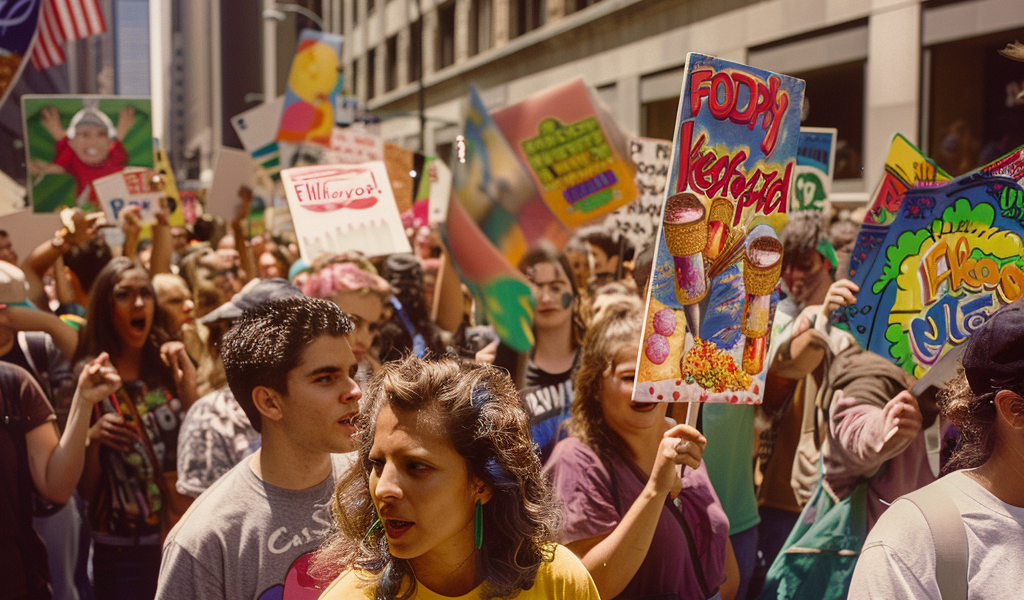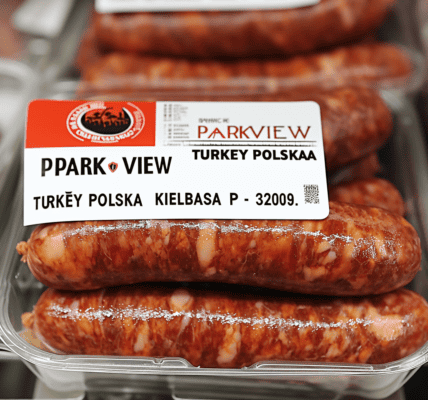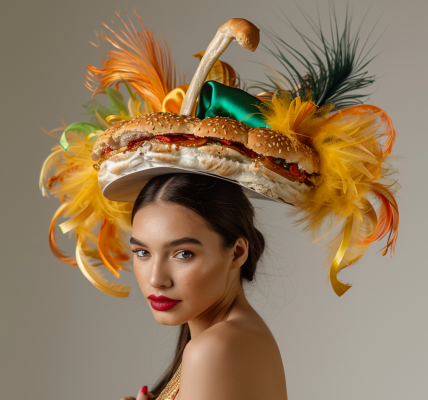Protests Erupt Over Synthetic Dyes in Kellogg Cereals
BATTLE CREEK, MICH. — A significant protest unfolded on October 15, 2024, at the headquarters of WK Kellogg Co, highlighting the ongoing debate surrounding the use of synthetic dyes in food products. Activist Vani Hari, widely recognized as the “Food Babe,” led the charge, presenting a petition with over 400,000 signatures directed at the company’s CEO, Gary Pilnick.
The petition calls for the removal of synthetic dyes and BHT (butylated hydroxytoluene) from Kellogg’s cereals sold in the United States, arguing that these ingredients are linked to behavioral issues in children. Among the cereals under scrutiny is Froot Loops, which contains a mix of artificial colors including Red 40, Yellow 5, Yellow 6, and Blue 1, along with BHT.
In response to the protest, WK Kellogg Co emphasized its commitment to food quality and safety. The company stated that all ingredients used in their products comply with applicable laws and regulations, and they are dedicated to transparent labeling practices that empower consumers to make informed choices.
“Today, more than 85% of our cereal sales contain no colors from artificial sources,” the company affirmed. They also highlighted their continuous innovation in creating cereals that are free from artificial colors across their major brands, aligning with consumer preferences for healthier food options.
Hari pointed out a notable disparity: Kellogg’s cereals in countries like the United Kingdom, Australia, and Germany do not contain the same synthetic dyes and BHT that are present in their American counterparts. This discrepancy raises questions about the ingredients used in different markets and the rationale behind such choices.
The protest comes on the heels of legislative changes in California aimed at regulating food dyes. In September 2024, Governor Gavin Newsom signed the School Food Safety Act, which prohibits the use of six synthetic dyes in foods and beverages served in public schools across the state, effective December 31, 2027. The banned dyes include Blue 1 and 2, Green 3, Red 40, Yellow 5, and Yellow 6.
This legislative action was preceded by another significant bill signed into law by Governor Newsom on October 7, 2023, which bans Red 3, brominated vegetable oil, potassium bromate, and propylparaben in foods and beverages in California, effective January 1, 2027.
The growing concern over synthetic dyes is not new. A study published in The Lancet in 2007 established a connection between artificial food colors and increased hyperactivity in children. This research has fueled ongoing discussions about the safety and health implications of such ingredients.
As the debate continues, consumers are increasingly advocating for transparency and healthier options in the food industry. The actions taken by activists like Hari and the legislative measures in states like California reflect a broader movement towards clean labeling and the elimination of potentially harmful ingredients from everyday foods.
With the pressure mounting on major food manufacturers to adapt to changing consumer preferences, it remains to be seen how companies like WK Kellogg Co will respond in the long term. The recent protests and legislative changes signify a pivotal moment in the conversation around food safety and ingredient transparency.





